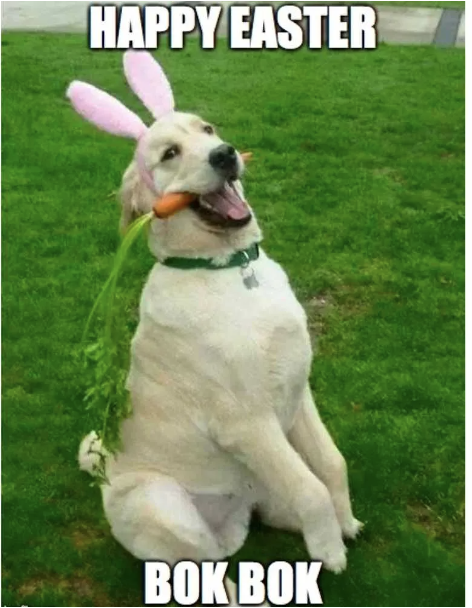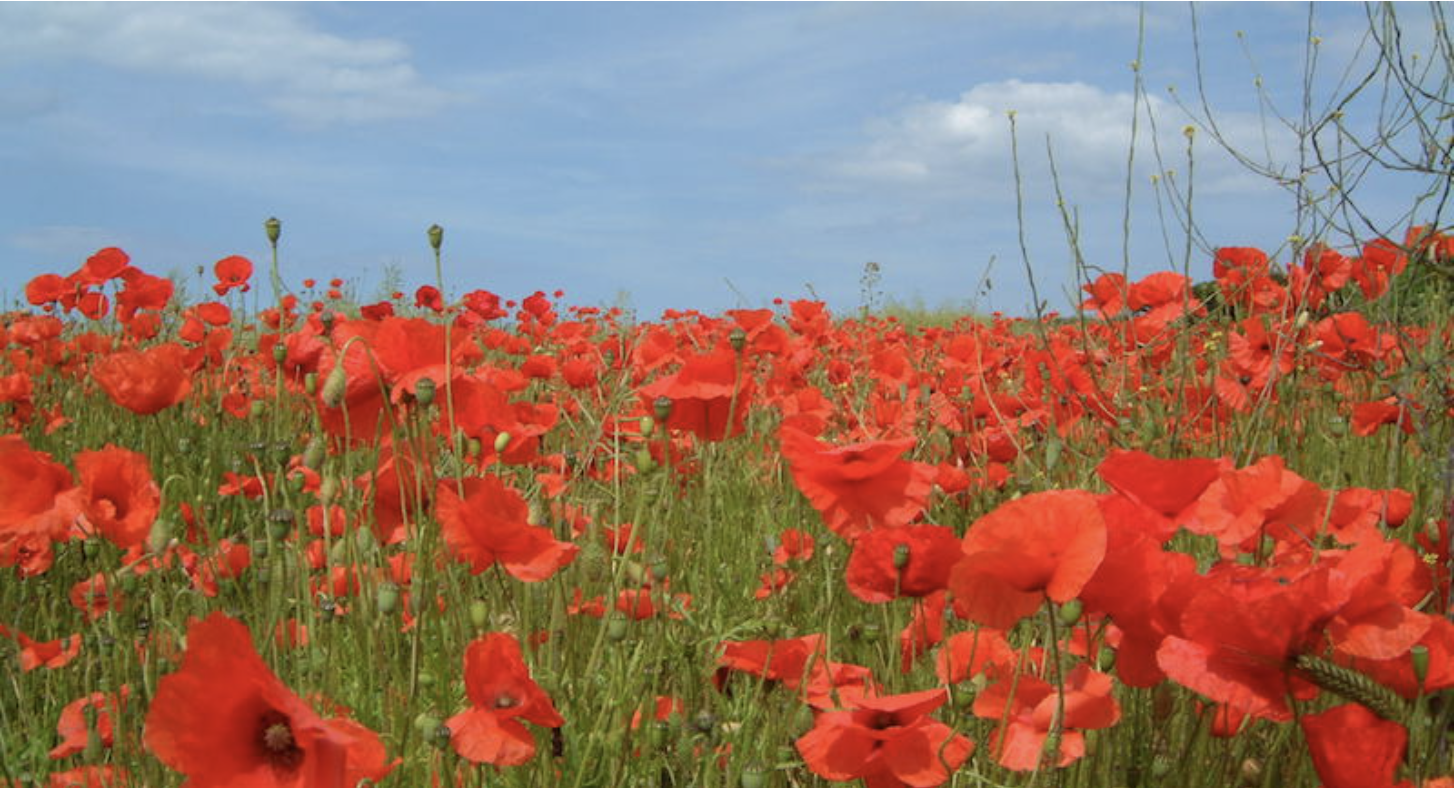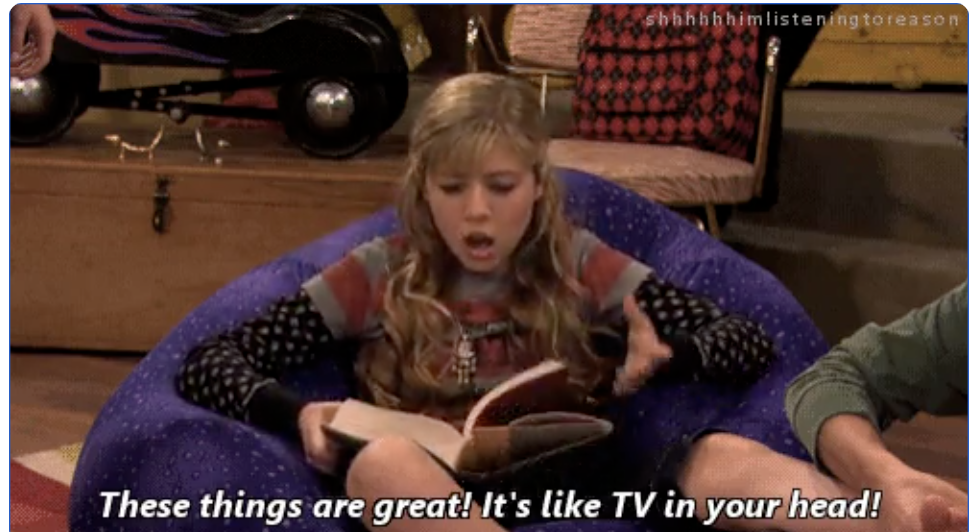9F1 English
Section outline
-
Week 1, T3.
Kia ora and welcome to my Term 3 English Class.
My name is Mr. Hishey and I will be your teacher for English for Term 3.
The context for the term is Elections as NZ will be having its elections this year.
So, we will be exploring oral, written and visual language to look within the structure of the English language to make meaning. Then we can use strategies ( the ability to connect between the oral, written and visual) to create meaning to apply in context in a meaningful way.
Explore: LI: make connections between oral, written and Visual language feaures.
SC: Connecting: Oral to Listening and speaking, Written to reading and writing, visual to viewing and presenting.
-

Whāia te iti kahurangi ki te tūohu koe me he maunga teitei
Seek the treasure you value most dearly: if you bow your head, let it be to a lofty mountain
Kia ora, and welcome to your English course page for 2023. My name is Miss Wright and I will be your English teacher this year. This page is where you will be able to find all the necessary information you will require for your English course. All tasks and assessments will be placed here as well as additional lesson notes and resources. Please make it a habit to check this page at the start of each week, this will ensure that you are aware of any expectations we may have of you at that time.
Enjoy this year and if there are any queries do come and see me or feel free to email me - swright@mhjc.school.nz
Success Criteria:
- We are EXPLORING how texts demonstrate an understanding of purpose and audience through deliberate choice of content, language, and text form
- We are EXPLORING how a text develops and communicates increasingly comprehensive ideas, information, and understandings
Activities:
- ReadingPlus Insite Testing
- Join GoogleClassrooom
- MHOL
- Reviews - introduction
- Library Friday S5
Further Learning:
Read a book -

Ahakoa he iti he pounamu
Although it is small it is a treasure
Kia ora. Welcome back to week three. We have loved having you back at school (Valentines day reference), Hopefully you have got back into the routines and are starting to get to grips with your new timetable. Last week, we started looking at reviews. Reviews are written for a specific audience and purpose. We are going to be exploring the structure of reviews and beginning to write reviews ourselves.
Success Criteria:
- Identify a range of structural elements of text : Intro- title/author/type of product, thesis (opinion)
- Body - summary, compare/contrast, concrete evidence, connections, background
- Conclusion - restate thesis, kooh (reverse hook)
*** As Cyclone Gabrielle impacts on Auckland we have moved to on-line learning. We are fortunate that we were able to use our library time last week, so I would like you to spend some time reading the novels you issued. We have looked at the structure of a review. This week we were going to start brainstorming, drafting and publishing reviews. The weather has not stopped us doing this, with a few adjustments. Please select a movie that is appropriate for school AND your family expectations. Watch the movie and write a review of it. If you do not have access to movies - write a book review. ****
Activities:
- Annotate reviews (groups)
- Select a movie (appropriate for you age/school/patental expectations)
- Write a review of this movie
Further Learning:
Watch/rewatch your chosen movieRead a book
-

Haere taka mua, taka muri; kaua e whai
Be a leader not a follower
Kia ora. I am so excited - we get to have a Monday and Tuesday on site! It's incredible to think that it is week four and this will be the first Monday we meet. Have you been seeing some of the images of Cyclone Gabrielle's devastation around the North Island? For some of these communities this is another in a long line of natural disasters. Tairawhiti was impacted by Cyclone Bola in February 1988, The Hawkes Bay region endured a major Earthquake in 1931 which led to the rebuild of Napier in an Art Deco style. In Auckland, the west coast, especially our beautiful black sand beaches of Piha and Muriwai have been seriously affected. It seems incredible that so many significant events have happened over the past 3 years! There are many books written about some of these events - I am sure the Cyclone Gabrielle events will also form part of our literary landscape before too much longer - perhaps you will be one of the authors recounting these tumultuous times!
Success Criteria:
- Identify a range of structural elements of text : Intro- title/author/type of product, thesis (opinion)
- Body - summary, compare/contrast, concrete evidence, connections, background
- Conclusion - restate thesis, kooh (reverse hook)
Activities:
- Complete movie review and add to slideshow
- Hyperlink slide to index
- Music reviews
- Library
Further Learning:
Read your bookListen to music (appropriate for school - lyrics!) that you want to review
EXPLORE / TŪHURA learning intentions:
- We are EXPLORING how texts demonstrate an understanding of purpose and audience through deliberate choice of content, language, and text form
- We are EXPLORING how a text develops and communicates increasingly comprehensive ideas, information, and understandings
- Identify a range of structural elements of text : Intro- title/author/type of product, thesis (opinion)
-
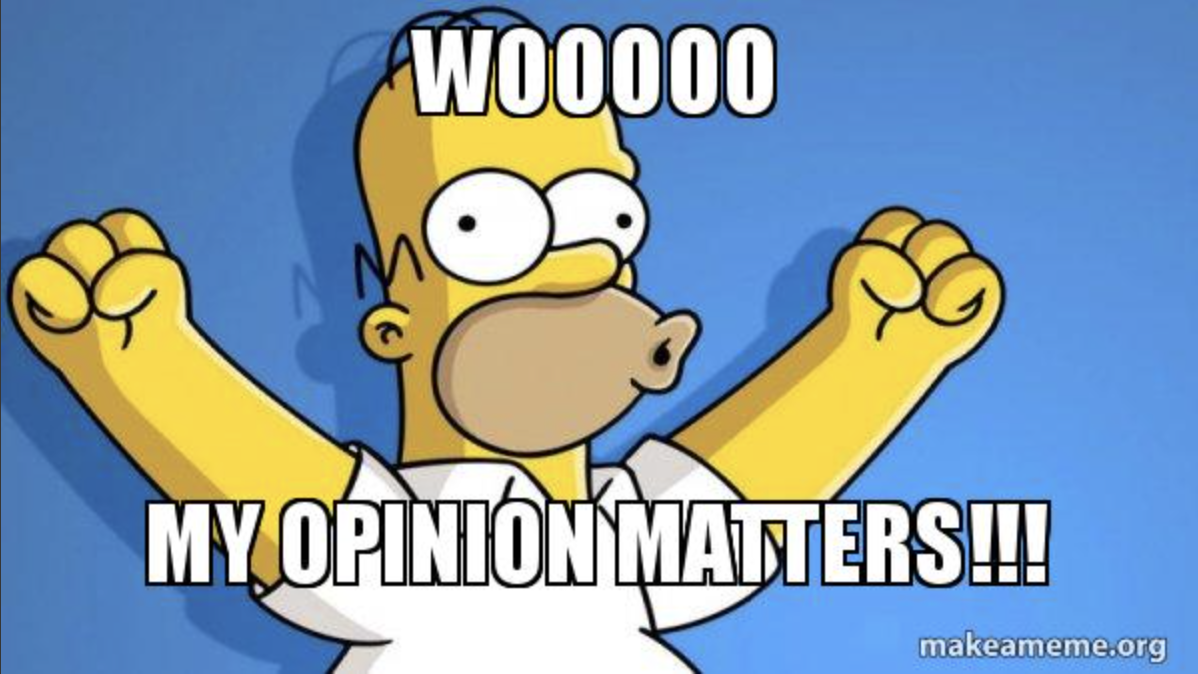
Iti rearea, teitei kahikatea ka taea
Although the bellbird is small, it can fly to the top of the mighty kahikatea
Kia ora. Well done on getting your movie reviews (and in some cases your music reviews) onto the shared slideshow. It is important that you get this work compleleted within the week it has been set. As Year 9s the expectation is that you are able to complete your draft writing and your published work within the week it is set. We started the movie reviews in week 3, so they are now past their 'use-by' date. This week we are going to explore opinion writing in more depth with a focus on purpose and audience. The reason you are writing and the audience you are writing for determines the language techniques and structure you use when sharing your opinion (and persuading to your point of view). Please spend some homework time completing work in order to meet your deadlines.
Success Criteria:
- I can use a writing framework to organise elements of written text into a cohesive piece of writing
Activities:
- Complete and publish music reviews
- Audience and purpose - how to persuade to your opinion essay structure
Further Learning:
- Read your book
- Complete Movie and Music reviews and upload them to the shared slideshows.
FOCUS / ARONGA learning intentions:
- We are FOCUSSING on identifying the purpose and audience of our text
- We are FOCUSSING on organising and developing ideas and information for a particular purpose
- We are FOCUSSING on making and justifying an opinion with clarity and conciseness
-
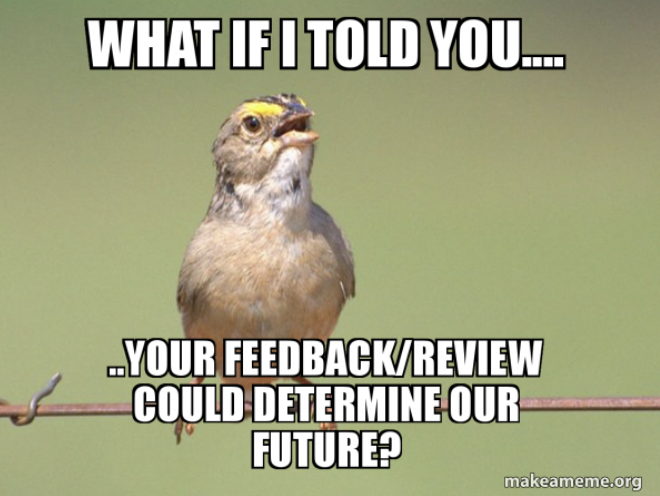
Inā kei to mohio koe ko wai koes, I anga mai koe I hea, kei te mohio koe. Ke te anga atu ki hea
If you know who you are and where you are from, you will know where you are going
Kia ora. We are halfway there, you are no longer new Year 9s, you now have had five weeks to settle in and you are well into the role and expectations. This week the Year 7s and some Year 10s are off to camp. This means that you are some of the senior students in the whanau. What you do matters! This fits in nicely with our opinion writing. When you are writing reviews your opinion, experiences and voice matters! To persuade people to your opinion is a very useful skill, and one that is supported by clear and structured literacy. This week we are going to review some exemplars of persuasive/opinion writing and identify the elements that make them successful. It is also library week, so remember to bring your books to school so that they can be returned and new ones issued.
Success Criteria:
- I can use a writing framework to organise elements of written text into a cohesive piece of writing
Activities:
- Exemplar annotation
- Draft writing - proof read and publish your opinion piece - proofread with a partner
- Library
Further Learning:
- Read a book
- Complete in-class writing tasks - one piece of completed writing (to publish stage) every week
FOCUS / ARONGA learning intentions:
- We are FOCUSSING on identifying the purpose and audience of our text
- We are FOCUSSING on organising and developing ideas and information for a particular purpose
- We are FOCUSSING on making and justifying an opinion with clarity and conciseness
-
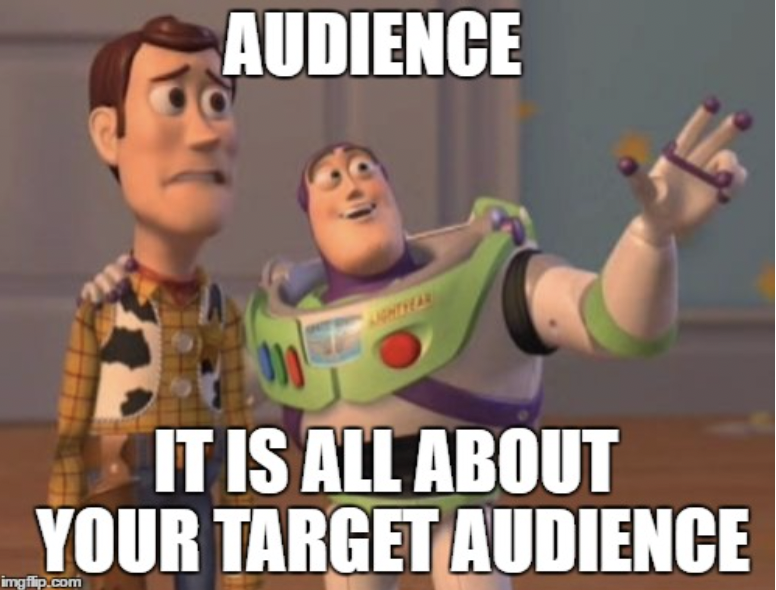
He aha te kai a te rangatira? He kōrero, he kōrero, he kōrero
What is the food of the leader? It is knowledge. It is communication.
Kia ora. Last week we looked at proofreading and editing. These terms tend to be used interchangeably, but they are very different things. Proofreading is correcting errors in spelling, punctuation and grammar, editing is checking that your word choices and meaning is clear. Having a vision of your audience and purpose when writing also helps when you are editing. It provides a scaffold for word choices, structure and tone. Early this week we are going to explore Purpose and Audience in a bus stop activity. You will then be able to complete the proofreading and editing of the opinion piece you worked on last week. These skills are setting you up for success in your assessments tasks (across all learning areas). We will be joined for the rest of the term by Miss Yacos (from America...... that commute is almost as bad as mine), I know you are all going to be awesome, welcoming, supportive, wonderful MHJC ambassadors for her.
Success Criteria:
- I can independently generate a piece of writing that suits audience and purpose with fluidity and control
Activities:
- Bus stop activity (purpose and audience) - in class
- Revisit opinion writing - Proofread and Edit
- Publish corrected and edited work
Further Learning:
Read a book, complete published opinion pieceFOCUS / ARONGA learning intentions:
- We are FOCUSSING on identifying the purpose and audience of our text
- We are FOCUSSING on organising and developing ideas and information for a particular purpose
- We are FOCUSSING on making and justifying an opinion with clarity and conciseness
-
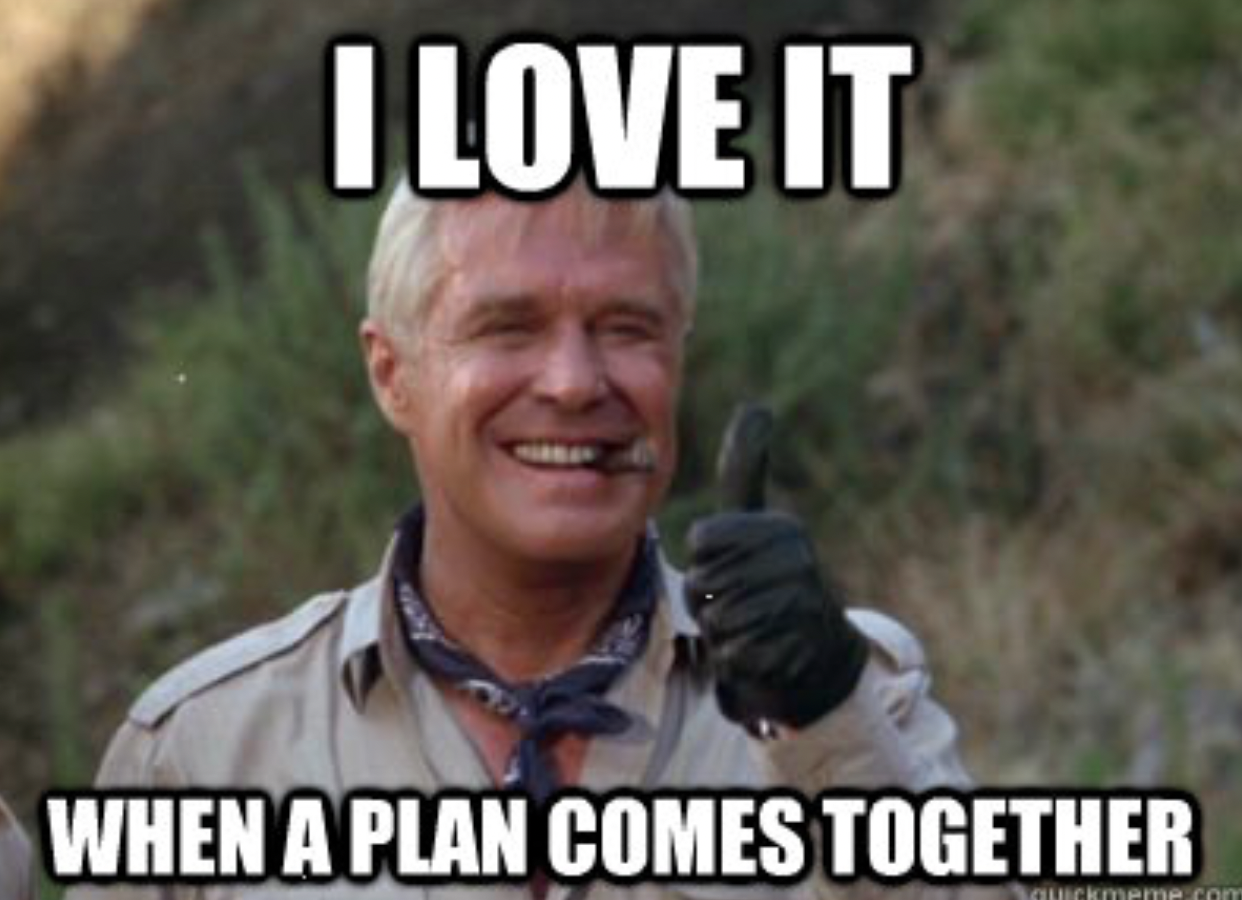
I orea te tuatara ka patu ki waho
A problem is solved by continuing to find solutions
Kia ora. It's week eight, or as I like to call it...... ASSESSMENT TIME. This week we are going to go over your assessment - which involves you writing an opinion piece. You will need to research and make effective notes and then write to support your point of view. We will go over the assessment task at the start of the week, and I will give you class time to work on your research. You will also need to use some at home time to work on your assessment. We will be going to the library this week.
Success Criteria:
- I have used words from instructions to plan and guide my writing and can argue my opinion with clarity and deliberation
Activities:
- Introduce assessment task
- Research chosen location
- Create effective notes (dot.jot)
- Identify 3 main points for further research
- Draft opinion piece
- Library
Further Learning:
Read a book, continue research, locate books for return to libraryPLAN & DO / WHAKAMAHI learning intentions:
- We are writing in response to a specific purpose and audience to
- Provide information to support our opinions with clarity
-
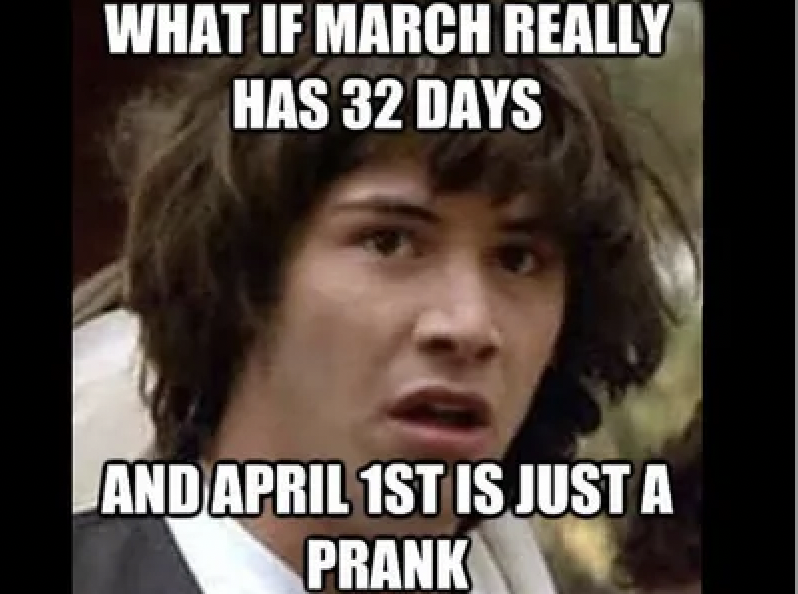
Mā te kimi ka kite, Mā te kite ka mōhio, Mā te mōhio ka mārama
Seek and discover. Discover and know. Know and become enlightened.
Kia ora. Well done on starting your research last week. By now, you should have a pretty good idea of the location of your opinion piece. If you are still researching and trying to identify a location, you will have to very carefully plan your time to ensure you meet the deadline. Once you have your research, you will need to identify the three aspects of your location you will use to strcuture the three paragraphs of your writing. You DO NOT have to cover everything you have researched. Choose the three aspects you know you can write about with authority. Remember to write using a TEXAS writing framework and to use the language of opinion/persuasion. Refer back to the exemplars provided in previous weeks for support (this includes your annotated TEXAS exemplar)
Success Criteria:
- I have used words from instructions to plan and guide my writing and can argue my opinion with clarity and deliberation
Activities:
- Complete research
- Read assessment task instructions carefully (Week 8)
- Draft review/opinion piece
- Check writing against marking rubric
Further Learning:
Read a bookPLAN & DO / WHAKAMAHI learning intentions:
- We are writing in response to a specific purpose and audience to
- Provide information to support our opinions with clarity
-
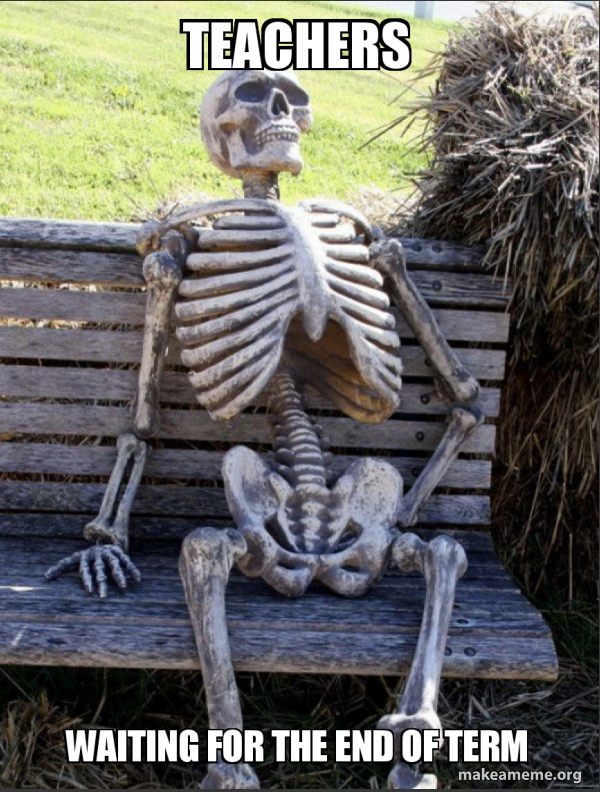
Kāore te kumara e kōrero mō tōna ake reka
The kumara (sweet potato) does not say how sweet he is
Kia ora. Almost there..... three and a half very important days to go. Your assessment task is due this week, It is important that you keep referring back to the instruction document to check your writing meets the purpose, audience and tone expected. We have whanau and celebration assembly's this week and also farewell Miss Bryce as she moves on to another New Zealand school before returning to the States.
Success Criteria:
- I have used words from instructions to plan and guide my writing and can argue my opinion with clarity and deliberation
Activities:
- Proof read and edit task
- Sublit task
Further Learning:
Read a book, return library booksPLAN & DO / WHAKAMAHI learning intentions:
- We are writing in response to a specific purpose and audience to
- Provide information to support our opinions with clarity
-

Ko te manu e kai ana i te miro
'the forest belongs to the bird who feasts on the miro berry, the world belongs to the bird who feasts on education'
Kia ora, welcome back. What a wonderfully long break we have had. I think we are so fortunate that the weather has been more settled than our last break. I hope you all took the opportunity to rest and relax after a very busy Term One. This term, we are going to focus on unpacking the anatomy of a story/novel. The context this term is The Art of......, and one of the things we will be looking at is structure in stories. We will also be looking at the themes around survival and challenge that feature so majorly in most young adult fiction. Please remember to return any overdue library books so that we are able to issue novels from the library this week.
Success Criteria:
- I can list elements in an extended text
- I can retell the main points of the extended text
- I can identify the main characters in the extended text
- I can define key words about the structure of extended texts
Activities:
- Brain dump - elements of a story/novel
- Refresh story map/thematic statements
- Language of novel structure (edPerfect)
Further Learning:
Read a book!EXPLORE / TŪHURA learning intentions:
- We are EXPLORING by identifying and recording elements in our extended text
- We are EXPLORING by skimming and scanning the text to locate and select supporting evidence
-

Ki te kāpuia e kore e whati
We succeed together
Kia ora. Week Two..... it seems like only three school days ago we started Term Two. I hope you are all settling back into school routine. This week we are going to start working within our literature circles. You all issued your novels last week, so I am going to give you class time to read and to work on your independent activities. Each member of the team will have a specific activity to complete each week, and you will then meet to share these. The first thing we need to do is to meet in our groups and set the schedule for reading the novels. You have four weeks to complete the reading. This means you need to be about a quarter of the way through the novel by the end of this week.
Success Criteria:
- I can list elements in an extended text
- I can retell the main points of the extended text
- I can identify the main characters in the extended text
- I can define key words about the structure of extended texts
Activities:
- Overview of literature circles
- Meet in groups to set reading schedule
- Silent reading of novel
- Completion of independent activity
- Meeting as a group to share activities
Further Learning:
Read your novel - keep to the schedule your group has set.EXPLORE / TŪHURA learning intentions:
- We are EXPLORING by identifying and recording elements in our extended text
- We are EXPLORING by skimming and scanning the text to locate and select supporting evidence
-
Whaowhia te kete mātauranga
Fill the basket of knowledge
Kia ora. How are you going with your novels? Well done to those of you who had completed the required reading and activity for your lit circle meeting on Thursday. Remember, you all have a part to play in developing your groups understanding of your novel. By the end of this week your aim is to be at least half way through your novels (and to complete this weeks activity, ready for your lit circle).
Success Criteria:
- Explain elements of text structure with support of well integrated quotes, examples and responses
Activities:
- Read novel
- Complete activity
- Lit circle meeting
Further Learning:
Read your novel!EXPLORE / TŪHURA learning intentions:
- We are EXPLORING by identifying and recording elements in our extended text
- We are EXPLORING by skimming and scanning the text to locate and select supporting evidence
-

He aroha whakato, he aroha ka puta mai.
If kindness is sown, then kindness is what you shall receive
Kia ora. Welcome to Kindness Week. Kindness lives in what we say and how we act. What can you do this week to make a positive difference to the people and places around you? Maybe you started with Mother's Day on Sunday. How did your celebrate the ones who nurture you? This week we are going to continue with our Literature Circles. One of the ways you show kindness to your classmates is by being prepared, completing the required reading and activities. By the end of this week, you should be at least 3/4 of the way through your novels. Your literature circle meeting will be on Monday, and I will update your scrapbooks with your activities after then.
Success Criteria:
- Identify and describe with examples text elements
Activities:
- Literature Circle meeting
- Read required pages from text
- Complete individual activity
- Literature Circle meeting
Further Learning:
Read your bookEXPLORE / TŪHURA learning intentions:
- We are EXPLORING by identifying and recording elements in our extended text
- We are EXPLORING by skimming and scanning the text to locate and select supporting evidence
-
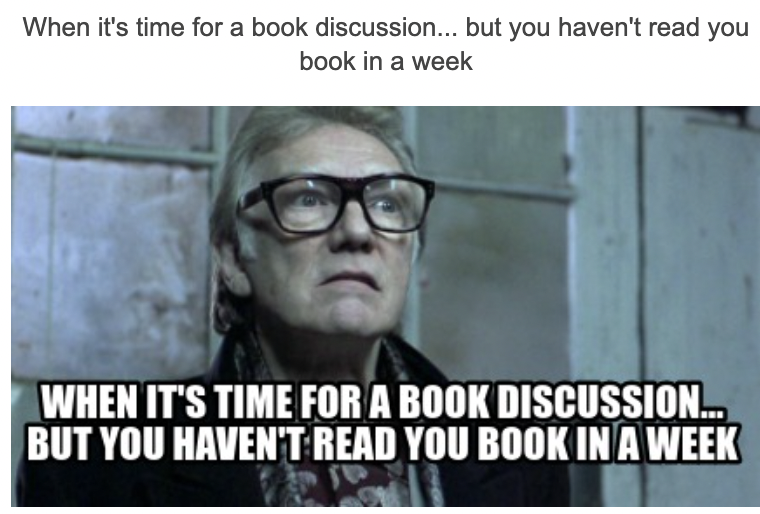
Ehara taku toa i te toa takitahi, engari he toa takitini
Success is not the work of an individual, but the work of many
Kia ora, it was great to see so many of you in the PINK last week to support kindness week. Remember, it is not the colour of the cloths you wear that make you an upstander - it is the actions you take to make your environment (people, places, things) better because you're there! This week, we are going to complete the reading and literature circle activities for your group books. Starting next week, you group will have activities to complete and the notes you have made in your group scrapbook and your group discussions will be really helpful. Your literature circle meetings will happen on Wednesday! We have library on Friday so make sure you know where the books you issued are so that you can return them this week.
Success Criteria:
- Identify and describe with examples text elements
- Summarise using a simple framework (somebody, wanted, but, so, then)
- Express a personal response to a text
Activities:
- Complete required reading (Finish book!)
- Complete literature circle activities
- Literature circle meeting
- Personal reflection on groups success and personal effort
Further Learning:
Read a book!FOCUS / ARONGA learning intentions:
- We are FOCUSING on identifying elements of structure used in a novel
- We are FOCUSING on being able to make connections between the text and our personal experiences and feelings
-
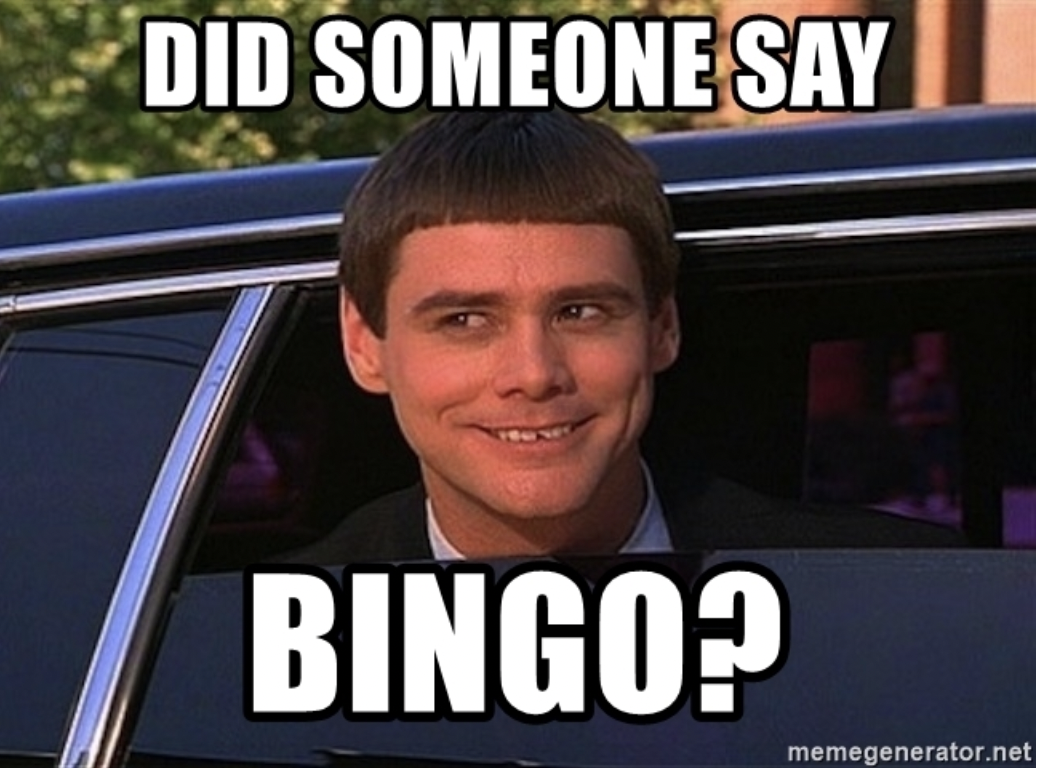
He kai kei aku ringa
There is food at the end of my hands
Said by a person who can use his basic abilities and resources to create success.
Kia ora. Well, that the first half of the term done and dusted..... we are quickly approaching the official start of winter too. This year seems to be flying by with many trips, events, special occasions and wild weather events. i wonder what the remainder of the term will bring. This week (and for the next few weeks) you will be working on your book bingo activities. Please remember, your bingo tasks are an individual activity. Please help each other to achieve the high standard I know you are capable of. You should not complete a task in one sesion - if you do, check in with a friend and get some feedback on how to take your work up another level. The shared work your group completed in your scrapbooks may help you when you are thinking about your Bingo activities.
Success Criteria:
- I have used a TEXAS writing framework to structure my writing
- I have included examples and evidence from the text to support my writing
- I have linked elements of the text to my personal response
- I have checked my work carefully for structure and sense
- I have used proofreading skills to improve my work
Activities:
- Individual Bingo Activities
- Library (Wednesday Session Two)
Further Learning:
Read a bookFOCUS / ARONGA learning intentions:
- We are FOCUSING on identifying elements of structure used in a novel
- We are FOCUSING on being able to make connections between the text and our personal experiences and feelings
-
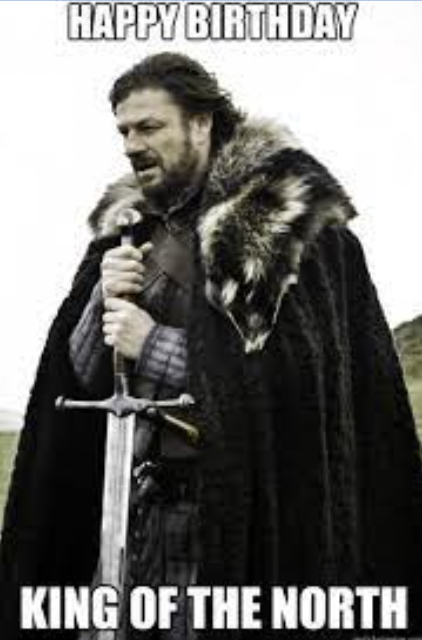
Ehara taku toa i te toa takitahi, engari he toa takitini
Success is not the work of an individual, but the work of many
Kia ora. I hope you all enjoyed celebrating the King's Birthday - I am sure we will get used to the change of name before too long! It is an interesting week - we have Tuesday, Wednesday and Friday on site. We are also starting the asTTle testing so your sessions may also be impacted by this. You have two more weeks to complete your reading/book bingos. Please show the depth of thinking I know you are capable of producing.
Success Criteria:
- I have used a TEXAS writing framework to structure my writing
- I have included examples and evidence from the text to support my writing
- I have linked elements of the text to my personal response
- I have checked my work carefully for structure and sense
- I have used proofreading skills to improve my work
Activities:
- Individual bingo activities
Further Learning:
Read a bookPLAN & DO / WHAKAMAHI learning intentions:
- We are PLANNING our response to extended text by using our notes to demonstrate our understanding of the elements of an extended text.
- We are applying our personal response to the elements to justify our decisions/opinions.
-

Nāu te rourou, nāku te rourou, ka ora ai te iwi
With your food basket and my food basket the people will thrive
Kia ora. Welcome to week eight. This week it is also time for to start pulling together your bingo tasks to develop your book fair presentation. This term our concept has been through art we thrive. How does this link to our book fair? Is literature a form of Art? Are there rules about structure that help the viewer gain understanding and receive messages through writing? Is Art the communication of ideas from one person to another and open to the individual interpretation of the viewer? Does reading make us better or more able to deal with our environment? By the end of this week you need to have all your bingo tasks completed (to the standard you know I have set for you). You will then have to decide how you are going to share this with your audience (Year 8 & 9 classes and possibly an invite to Year 7 and 10's to visit and view too). I am not sure of the exact timing yet as it will need discussion with other teacher, but I envisage the end of week 9/start of week 10. Focus Friday week 9 seems the easiest time at the moment as you will be in home bases session 3 & 4 so you could set up for presentation in 3 and present in 4. I am sure the teacher looking after you for the rest of the term will let you know.
Success Criteria:
- I have used a TEXAS writing framework to structure my writing
- I have included examples and evidence from the text to support my writing
- I have linked elements of the text to my personal response
- I have checked my work carefully for structure and sense
- I have use proofreading skills to improve my work
Activities:
- Complete bingo activities
- Consider/brainstorm presentation
- Develop presentation plan
Further Learning:
Read a bookPLAN & DO / WHAKAMAHI learning intentions:
- We are PLANNING our response to extended text by using our notes to demonstrate our understanding of the elements of an extended text.
- We are applying our personal response to the elements to justify our decisions/opinions.
-
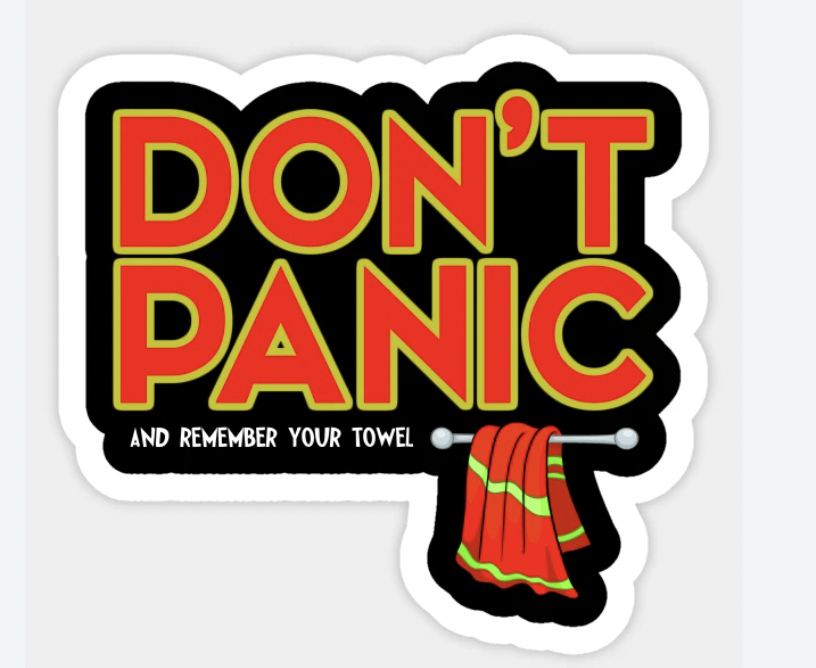
Ko te pae tawhiti whāia kia tata, ko te pae tata whakamaua kia tīna
Seek out distant horizons, and cherish those you attain
Kia ora. Thank you do much for your kind words at my farewell on Friday - it is always a challenge to move to a new school - for teachers as well as students. I will carry all that I have learnt over the past 3.5 years with me. I wish you all the very best for the remainder of the year and for your time at MHJC. I look forward to hearing about your successes.
Success Criteria:
- I have used a SEXY writing framework to structure my writing
- I have included examples and evidence from the text to support my writing
- I have linked elements of the text to my personal response
- I have checked my work carefully for structure and sense
- I have use proofreading skills to improve my work
Activities:
- Complete bingo activities
- Prepare for book fair
Further Learning:
Read a book (the image this week is from one of my favourite books - The Hitchhikers Guide to the Galaxy bu Douglas Adams)PLAN & DO / WHAKAMAHI learning intentions:
- We are PLANNING our response to extended text by using our notes to demonstrate our understanding of the elements of an extended text. We are applying our personal response to the elements to justify our decisions/opinions.
-
EXPLORE / TŪHURA learning intentions:
- We are EXPLORING how to express our point of view and perspectives through an oral presentation so that we can speak up on an issue that concerns me
- We are EXPLORING by recognising that we all have differing opinions on issues and their impact
- We are EXPLORING by investigating a topic of interest
EXPLORE / TŪHURA learning intentions:
- We are EXPLORING how to express our point of view and perspectives through an oral presentation so that we can speak up on an issue that concerns me
- We are EXPLORING by recognising that we all have differing opinions on issues and their impact
- We are EXPLORING by investigating a topic of interest
Week 1, T3.
Kia ora and welcome to my Term 3 English Class.
My name is Mr. Hishey and I will be your teacher for English for Term 3.
The context for the term is Elections as NZ will be having its elections this year.
So, we will be exploring oral, written and visual language to look within the structure of the English language to make meaning. Then we can use strategies ( the ability to connect between the oral, written and visual) to create meaning to apply in context in a meaningful way.
Explore: LI: Understand the links between oral, written and Visual language feaures.
SC: Connecting: Oral to Listening and speaking, Written to reading and writing, visual to viewing and presenting. Students need to practise making meaning - of ideas students receive, and creating meaning - for themselves and others. As students progress, they will use their skills to engage in tasks and texts that are increasingly challenging.
-
EXPLORE / TŪHURA learning intentions:
- We are EXPLORING how to express our point of view and perspectives through an oral presentation so that we can speak up on an issue that concerns me
- We are EXPLORING by recognising that we all have differing opinions on issues and their impact
- We are EXPLORING by investigating a topic of interest
EXPLORE / TŪHURA learning intentions:
- We are EXPLORING how to express our point of view and perspectives through an oral presentation so that we can speak up on an issue that concerns me
- We are EXPLORING by recognising that we all have differing opinions on issues and their impact
- We are EXPLORING by investigating a topic of interest
-
Our focus is film study. We will be watching a New Zealand film - Whale Rider. The film is set in Whangara, which is located on the east coast of New Zealand. It is present day.
The main characters are:
Paikea (or Pai) - a young girl and the central character in the film
Koro - Paikea's grandfather
Nanny Flowers - Paikea's grandmother
Porourangi - Pai's father
Rawiri - Pai's uncle
The narrative focus (story is told from their point of view) stays with Paikea and Koro throughout the film.
Learning Intentions: We are learning to (WALT)...
view film for enjoyment and for meaning
answer questions based on the first 30 minutes of the film
write meanings of Maori words in my own language
predict what will happen next in the film
Learning Intentions: We are learning to (WALT)...
view film for enjoyment and for meaning
answer questions based on the first 30 minutes of the film
write meanings of Maori words in my own language
predict what will happen next in the film
characters in Whale Rider.
Learning Intentions: We are learning to (WALT)...
Identify characters and the importance of characterisation in film
Written a paragraph on a character from Whale Rider
Presented my information about a character to my class/group
This week we will look at the themes (key ideas/messages/lesson we learn) in Whale Rider.
Learning Intentions: We are learning to (WALT)...
Identify the themes in the film
Identify key characters who are linked to this theme
Written a SEXY paragraph on theme
Our focus this week is is starting our reviews! We have been preparing for this all term. I can't wait to read all about your thoughts on 'Whale Rider'.
Learning Intentions: We are learning to (WALT)...
Write an effective review
Use language persuasively
Identify ideas in text
Identify language techniques
Produce structured writing
Proofread effectively
Success Criteria: I can/have...
use interesting vocabulary to write a review
use persuasive language to persuade our audience
use sub-headings and headings
use the SEXY writing structure to develop each paragraph
use a range of connectives within and to other paragraphs
use a variety of length of sentences for effect
develop an introduction that hooks in the reader and provides an orientation
-
Learning Intentions: We are learning to (WALT)...
view film for enjoyment and for meaning
answer questions based on the first 30 minutes of the film
write meanings of Maori words in my own language
predict what will happen next in the film
Learning Intentions: We are learning to (WALT)...
view film for enjoyment and for meaning
answer questions based on the first 30 minutes of the film
write meanings of Maori words in my own language
predict what will happen next in the film
-
Our focus this week is is starting our reviews! We have been preparing for this all term. I can't wait to read all about your thoughts on 'Whale Rider'.
Learning Intentions: We are learning to (WALT)...
Write an effective review
Use language persuasively
Identify ideas in text
Identify language techniques
Produce structured writing
Proofread effectively
Success Criteria: I can/have...
use interesting vocabulary to write a review
use persuasive language to persuade our audience
use sub-headings and headings
use the SEXY writing structure to develop each paragraph
use a range of connectives within and to other paragraphs
use a variety of length of sentences for effect
develop an introduction that hooks in the reader and provides an orientation
Create an image to showcase your understanding of the film.

